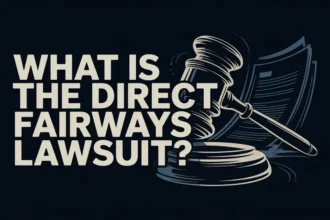Introduction
Legal problems can show up in many parts of life. Sometimes, they’re simple and can be handled on your own. Other times, they are more complex and need the help of a trained professional.
Knowing the difference between when you need a lawyer and when you don’t can save time, money, and stress. It also helps people feel more confident about handling basic issues — while also recognizing when professional guidance is a smart decision.
Gammill Law supports people by offering honest advice. Sometimes that means stepping in — and sometimes it means showing you how to move forward without legal help.
What Legal Issues Can Often Be Handled Without a Lawyer?
Writing a Simple Agreement
For small tasks — like loaning money to a friend or agreeing to share a tool or space — you don’t always need a lawyer. A clear, written note with both signatures and dates can serve as proof of an agreement.
Still, it’s important to keep language simple and avoid confusion. A good rule is: if the deal is small, short-term, and based on trust, you may not need legal help.
Filing a Name Change or Business Permit
Some city or state forms are designed to be completed without an attorney. For example, applying for a business license, changing your name, or renewing certain permits can often be done online or at a government office.
These processes may take time but are usually straightforward.
Small Personal Disputes
If you’re having a disagreement with a neighbor, coworker, or local business over something minor — like noise, shared space, or a refund — it’s often better to try to solve the problem directly first.
Using polite conversation, writing a formal letter, or seeking mediation through a local service can help settle issues without needing a lawyer.
Public Information and Legal Guides
There are reliable online resources that explain how to handle common issues, such as writing a will, setting up a simple contract, or filing complaints. Many state websites offer forms and instructions written in easy-to-understand language.
For simple, routine matters, these tools can be helpful — as long as the issue doesn’t involve complicated terms or high stakes.
When You Should Definitely Consider a Lawyer
The Law Is Complex or Unclear
If you’re dealing with a legal issue that seems complicated, involves more than one person or group, or includes paperwork you don’t understand, it’s time to contact a lawyer.
Even small mistakes can have long-term effects if you’re not sure what you’re agreeing to. A lawyer can help you avoid these risks and explain the situation in plain terms.
You’re Dealing With Legal Rules or Rights
If your rights are being questioned or you’ve been asked to sign something with legal terms you don’t understand, it’s smart to pause and speak with a lawyer first.
They can explain:
- What the document really means
- Whether the terms are fair
- What you’re agreeing to long-term
Understanding your rights before taking action is always better than reacting later.
A Mistake Could Be Costly
Some situations carry more weight than others — like contracts involving large amounts of money, long commitments, or shared property. In these cases, a small mistake in the wording or agreement could create future problems.
A lawyer can review the language, ask the right questions, and make sure the final agreement is balanced and safe for everyone involved.
Gammill Law helps people avoid legal surprises by stepping in early, reviewing details, and giving direct, honest advice before problems grow larger.
You’ve Been Contacted by a Lawyer or Official Agency
If someone else has involved a lawyer, or if a government office or official agency contacts you, don’t try to guess what to do. Speaking with a lawyer helps protect your interests, clarify next steps, and prevent misunderstandings.
Never ignore formal letters, warnings, or deadlines. Getting advice early can keep you informed and in control.
You Feel Unsure or Overwhelmed
Sometimes, the best reason to talk to a lawyer is simply this: you’re not sure what to do. Legal matters can feel confusing, even when they start small.
Talking with a lawyer doesn’t mean you’re in trouble — it means you care enough to get it right. Many lawyers offer a first conversation with no pressure to continue.
How to Decide Whether You Need a Lawyer
Ask These Simple Questions
To help you decide, ask yourself:
- Is this situation simple and short-term?
- Could a mistake cause major problems?
- Am I signing something I don’t fully understand?
- Has someone else already hired a lawyer?
- Do I feel confident handling this myself?
If you’re unsure about any of these, it’s worth speaking to a lawyer for advice. A short conversation can bring peace of mind and help you move forward with confidence.
Use Trusted Legal Resources
If you’re handling a minor legal task on your own, use official sources. Avoid forums or websites that offer legal “opinions” without proof or experience. Stick to state websites or verified legal guides.
Knowing where to get real information is just as important as knowing when to ask for help.
Gammill Law encourages people to stay informed and take smart steps. Whether you’re handling something alone or with their support, the goal is to move forward with clarity and care.
Final Thoughts
Not every legal issue requires a lawyer — but many do. Simple tasks, small agreements, and common forms can sometimes be handled without help. But when the stakes are higher, the rules are unclear, or you’re feeling unsure, it’s always smart to speak with a legal professional.
Knowing the difference helps you make better decisions and avoid problems later.
Gammill Law is here when you’re ready — offering guidance, support, and clear answers when legal help is truly needed.

















